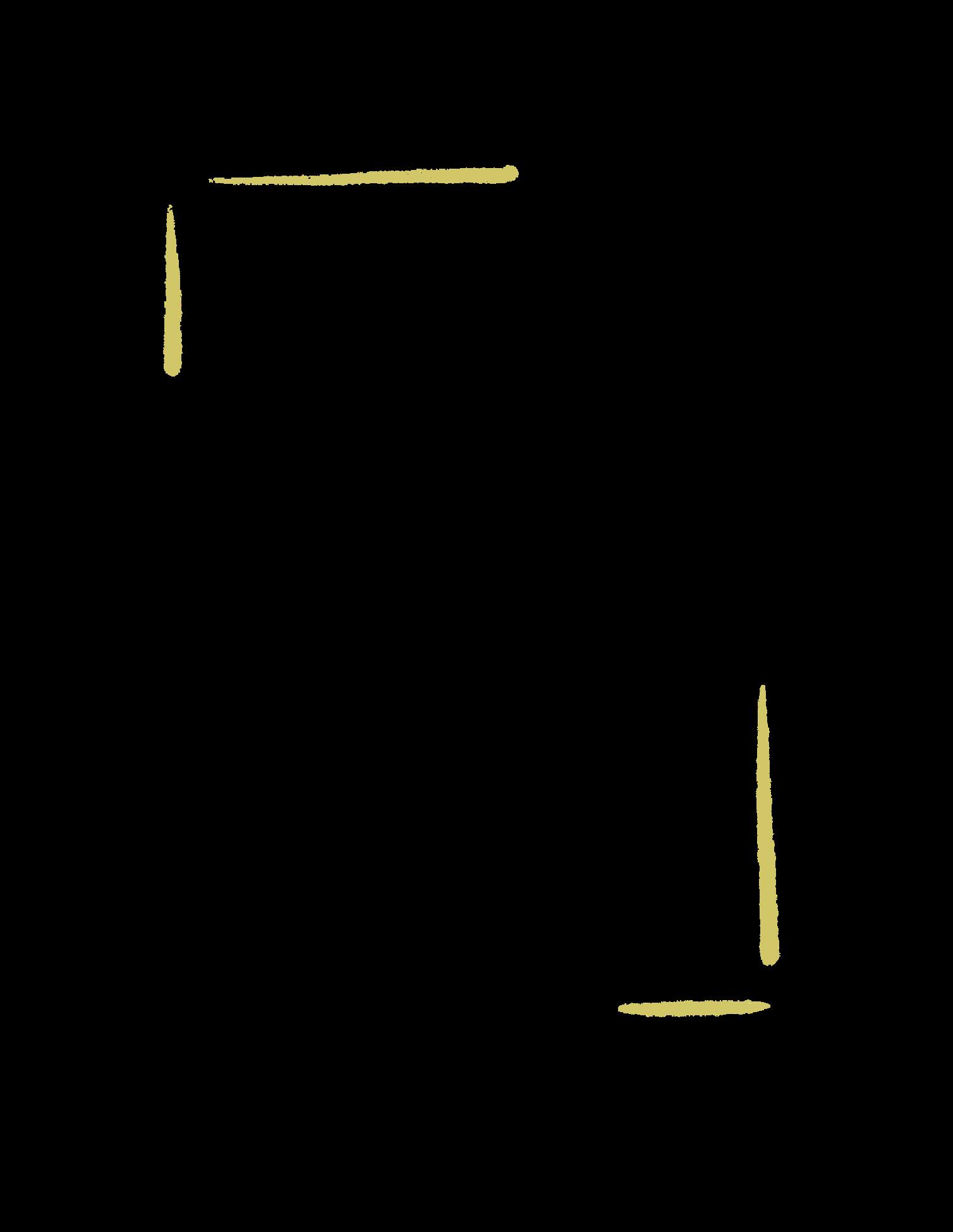

MUSE
 Cover by Jane Zhou
Cover by Jane Zhou
Welcome to the 2024 edition of MUSE, Woodside Priory’s literary and arts magazine!
Please enjoy this collection of artworks, photographs, poems, and other literary works created by the student body.
We invite you to experience nostalgia, this year’s theme.
Nostalgia is the bittersweet feeling of reminiscing on a sweet memory of a past place. It is an inherently human experience to both agonize over wanting to return to that time, while being joyful to have been there at all. We associate this feeling with childhood lullabies and the sight of playgrounds that once seemed so large.
Each year the staff chooses the piece we believe best expresses the theme. Because one’s childhood home evokes nostalgia, we chose Avery Jackson’s acrylic painting titled “Home” as this year’s prize winner. Her use of undefined shapes gives the painting a blurry effect, which perfectly depicts the indescribable feeling of longing for a past time. We thank all those who submitted their work to MUSE, giving us the honor of displaying your work to our community for others to experience and admire.
We hope this year’s magazine reminds you of a time you’ve since forgotten, but perhaps long for.
Jacqueline Biscay and Morgan Dobrenski MUSE Co-Editors
We offer a special thanks to the MUSE staff, an integral part of the creative process and production of this magazine: Alyssa Zhang, Beckett Song, Cara Lee, Conrad Brousseau, Elisa Casentini, Katie Zheng, Nadia Iskandar, and Temilola Sobomehin.
Lastly, we hold great gratitude for our moderator, Ms. Lanctot, for her guidance and dedication to the magazine.
Contents: Visual Works
Contents: Literary Works

What are you?
well literally, you are A building with walls, and a roof,
Home?
By Ash Patnisoon to be renovated fore ver
So rather, maybe I should ask What were you?
I could define you as a home, a shelter But also, when simply put, As a safe space, which to be honest, isn't always guaranteed wherever I go
Whereas… now… it just seems like You’re the root of my troubles, especially as of late. you ’ re the catalyst of them.
so I’ll ask again what really are you?
Or rather the better question might be, when i look or think back on my life, Which you will I think fondly of?
the old you, the current you?
or the new you, that I have yet to see? to be honest, I’m not quite sure
Life’s Song
Kiara LindoShe sang softly, as the morning mist unveiled its mystery, floating over the foothills, each dawn. First in Italian, babbling brooks
A lullaby calling her mother to mind, and her sweet voice, then in English, a tapestry of memories.
“That’s not right, Mama” our playful protests, embraced by the warmth of Mama’s loving arms, with a smile shining in each note.
Mama, the guardian of our innocence, allowed us the freedom to play, wishing time had been a more leisurely companion.
A person’s greatest legacythe blessing to savor life’s fleeting song.


Fractured Childhood
Alika GuptaWarming their bodies under the sun. Wisteria, coral, the baby blue with uneven edge, container the length of five fingers, round body and wide top.
Here we plant the most delicate sapling which could have lived ignored in the crevices of a sidewalk crack, sprout of soothing willow, crouching cottonwood.
They grow deeper on the windowsill.
Here we entrust the delicate life, snowflake, droplet, cell. And it grows. It waits all day. As the clothes dry and the kids unlock their sparkling phones to open the app that looks like overlapping ovals of color.
And what can be heard in the kitchen?
Nothing of the newer leaf cocooned in safety of the older leaf or the way glowing stars line the ceiling. Mothers and fathers, quarreling as they destroy, quiet as the child comes. The whole pallet of emotions, tints and shade of color, paintings, the way they screamed, “I hate you” when irate, Or “I’m done” for “I’m sorry” — a shattered ceramic on the floor remains radiant.
Meanwhile the child of the house sleeps with the screams of her parents fighting and the lasting loneliness of loss.

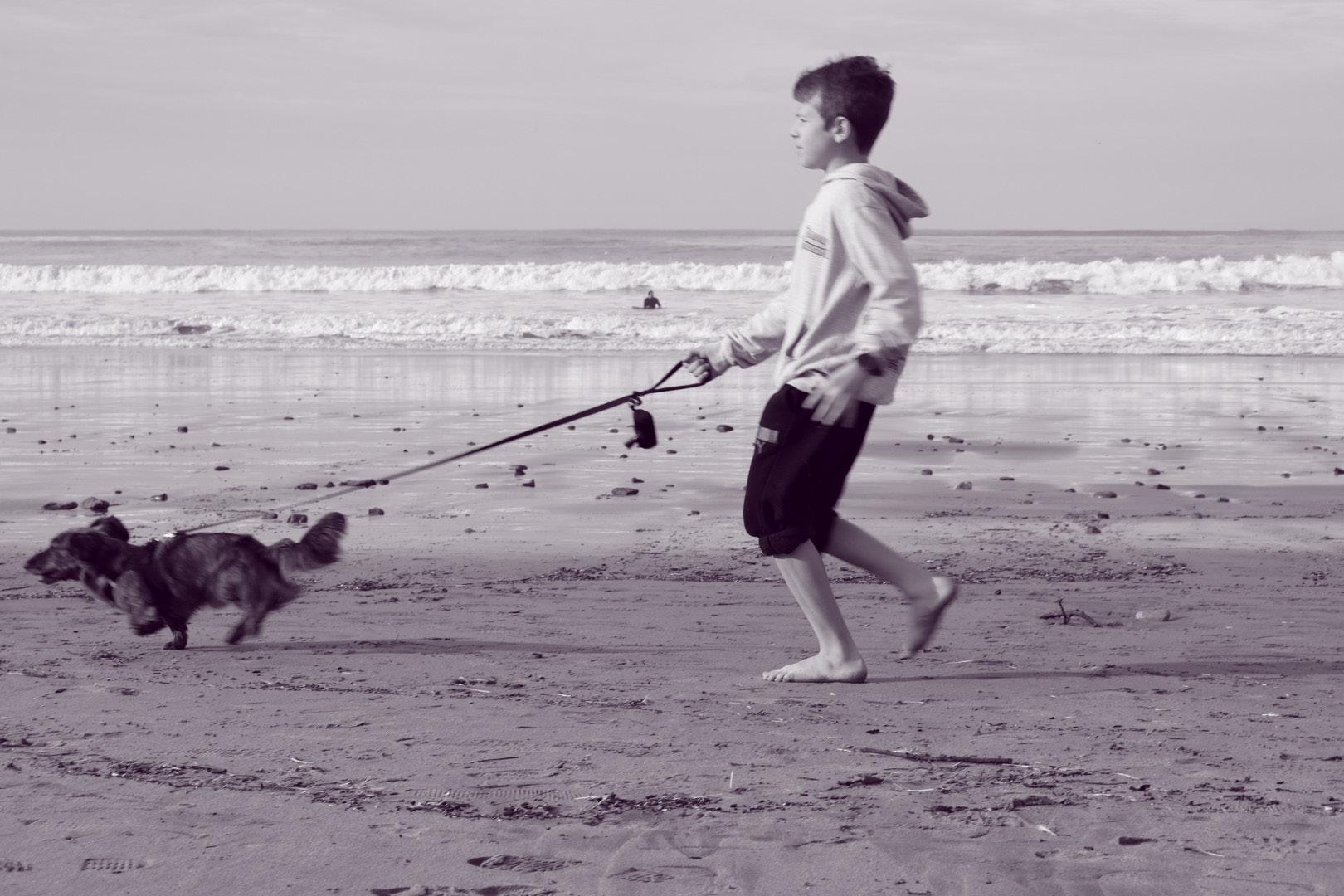
 Allegra Ryan
Allegra Ryan
Back In Time
Naya ChenIn the golden days of yore, when our childhood dreams would soar, Our laughs more wild then can be, Echoing throughout the trees, All so carefree as the summer breeze.
But as life’s chapter turns a page, We a enter a bustling stage, With each step is a new terrain, navigating the cycles of joy and pain.
Deep within our beating hearts, The childhood spirit never departs, A guiding light when were down, Leading us back to the moments without a frown
So we hold on tight, To all the memories we made, Of the innocence found in our childhood maze.
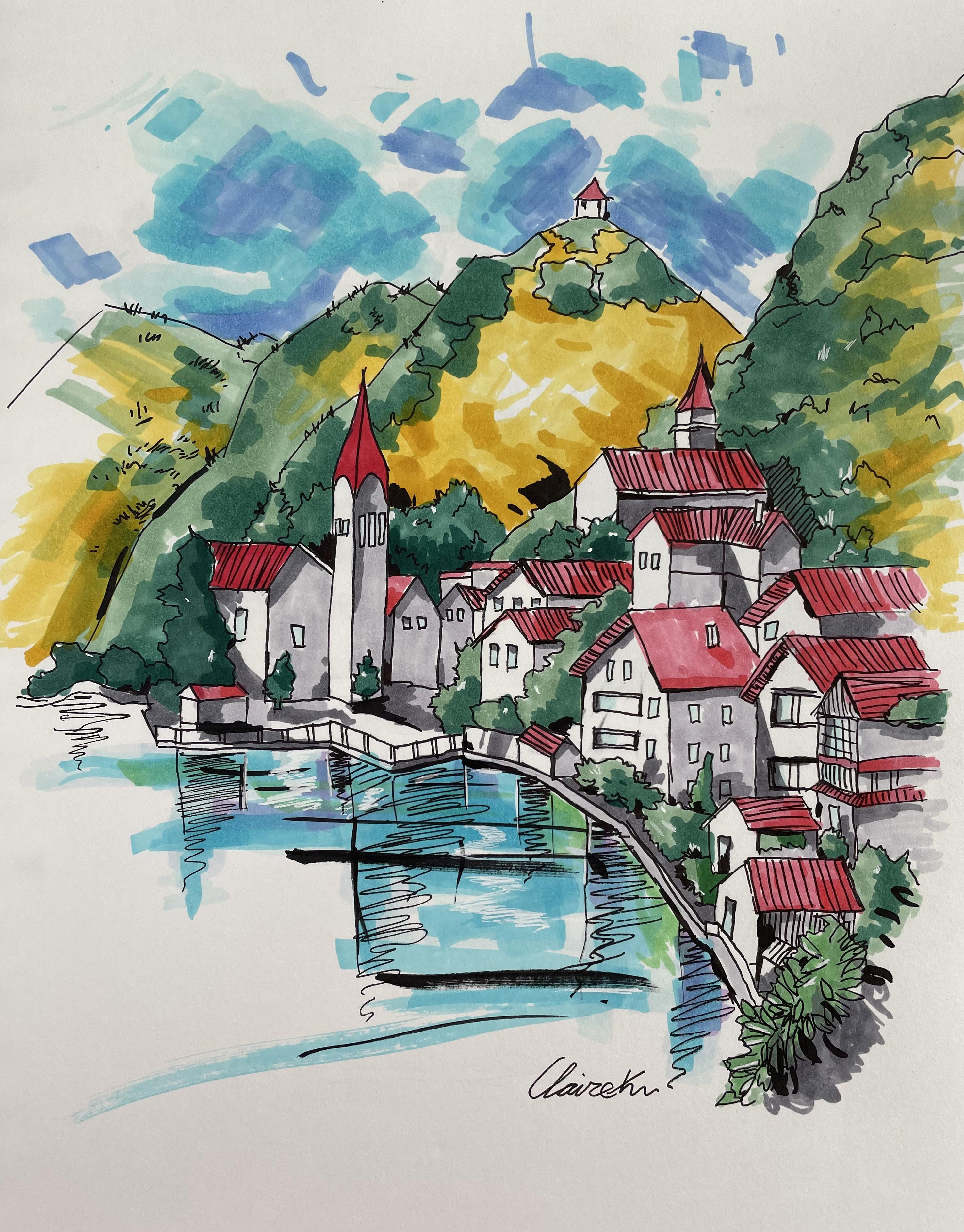

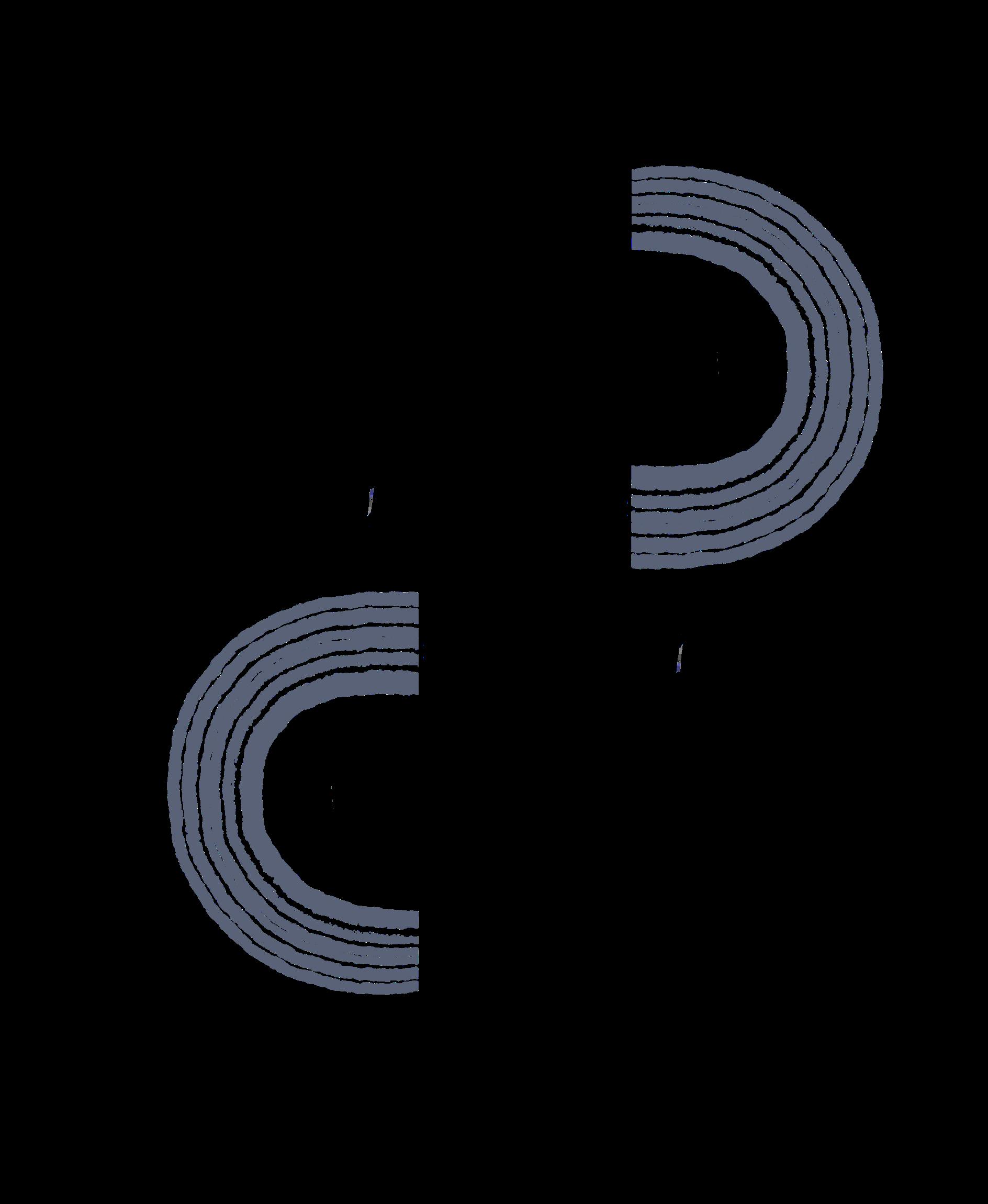
My Cousin’s Winter Snow
Sophie Curran
For summer my cousin was indifferent. She’d shake her head at the sun and say, “See that? I wish it was snowing.”
At night when I sat by her bed I made stories like woven blankets.
She’d always want them to be in the winter snow. Even when the story didn’t fit it, she’d ask.
Once a little girl was on a hike and it started to snow. Or, she dove into the water and stared at the snow.
Or, when they found and brought her home, she carried snowballs in her hands.
When we were 7 I made snow from ice in a blender and shrugged.
“That’s not it!” she said,
“I’m talking about the untouched snow straight from the sky-
gift of the heavens!-on a secluded field so far it never is bothered by anyone.
I’m talking about the whitest, fluffiest, prettiest snow in the world and playing in it by myself.”
(This is when she’d close her eyes and sigh.)
Years passed, and we lived in many places, none had snow.
We had summer sunshine, spring thunder, early fall heatwaves.
“Go travel!” our grandma would say, but my cousin never did.
She sat outside alone, forgot to put on sunscreen, let her hair get ruined by the spring showers.
“What a dreamer she is. Look how many times she goes outside and never enjoys it.”
The last time she moved, my phone rang.
My cousin, in Irish, hummed a tune I couldn’t understand.
“What are you doing?” I asked.
“Come and see!”
She took me out to her new house.
There, outside the window of her home, in the field, layed the whitest, fluffiest, prettiest snow untouched for her.
“It’s the winter folktale!” she beamed.
Hopping in the snow like a rabbit, laughing, playing, in the snow that fell just for her.


My innocence died last night, My innocence who never dies.
Christmas was in the air, A few months away, But in the air, still.
It was early April. The darkness of night gloomed in the windows.
We could hear avoidance in his voice from across the room-
No, he’s realmagic of that kind is here.
How alone I amno guidance, no confidencemy brain seems so lost without them.
Nostalgia drifted out of my mind; the baskets at the fireplace, colorful but not full.
Under my transparency I was crying the denial away; my stiff limbs became cradled meat of sadness.
How alone I am, but in memory my childhood is my rejoicing.
It was early April as it had been Valentines Day, Thanksgiving.
I slept in my bed, the crystals dried, my head down covering them up.


My Sister and the Seashell
Anya MehraMy older sister never cared for the actual beach. She’d sprawl on the beach blanket and say, “Can we go home? I don’t see any shells here.”
Every time we went, she sat in the sand with her colored pencils, like a real artist. It was always seashells.
No matter what she drew, there it was.
Ariel collecting iridescent seashells from the ocean floor for her true love on land.
A young couple listening to the ocean in a seashell. A flower field at sunset, but nestled in each carnation was a sparkly little seashell.
Once I brought home an abalone shell for her.
“It’s pretty, but this isn’t what I mean,” she said, “I mean conch shells from the depths of the sea–treasure of the ocean!–with colors so beautiful, nature herself must’ve painted it.
I mean holding up the smoothest, pinkest, most pearlescent queen conch in all the seven seas and hearing the waves inside.”
(She then stops to smile to herself.)

The summers flew by, we went to many beaches, none with conch shells.
We found scallops, sand dollars, more abalone shells.
“Find one online!” my younger brother said, but my sister never did.
She stood on the shore, gazed blankly at the sand, let the frothy waves pool at her feet.
“Look at her fantasizing. She thinks she can think her dreams into existence.”
Next year in college, I got a letter, my sister, with some art school drawings and a Polaroid. I held it up to see.
She was sitting under the shade of a palm tree.
Sure enough, cradled in her hands, the smoothest, pinkest, most pearlescent queen conch in all the seven seas.
I had never seen her so happy, sand sticking to her arms and neck, the prize she clasped a promise that reality is hers to take.

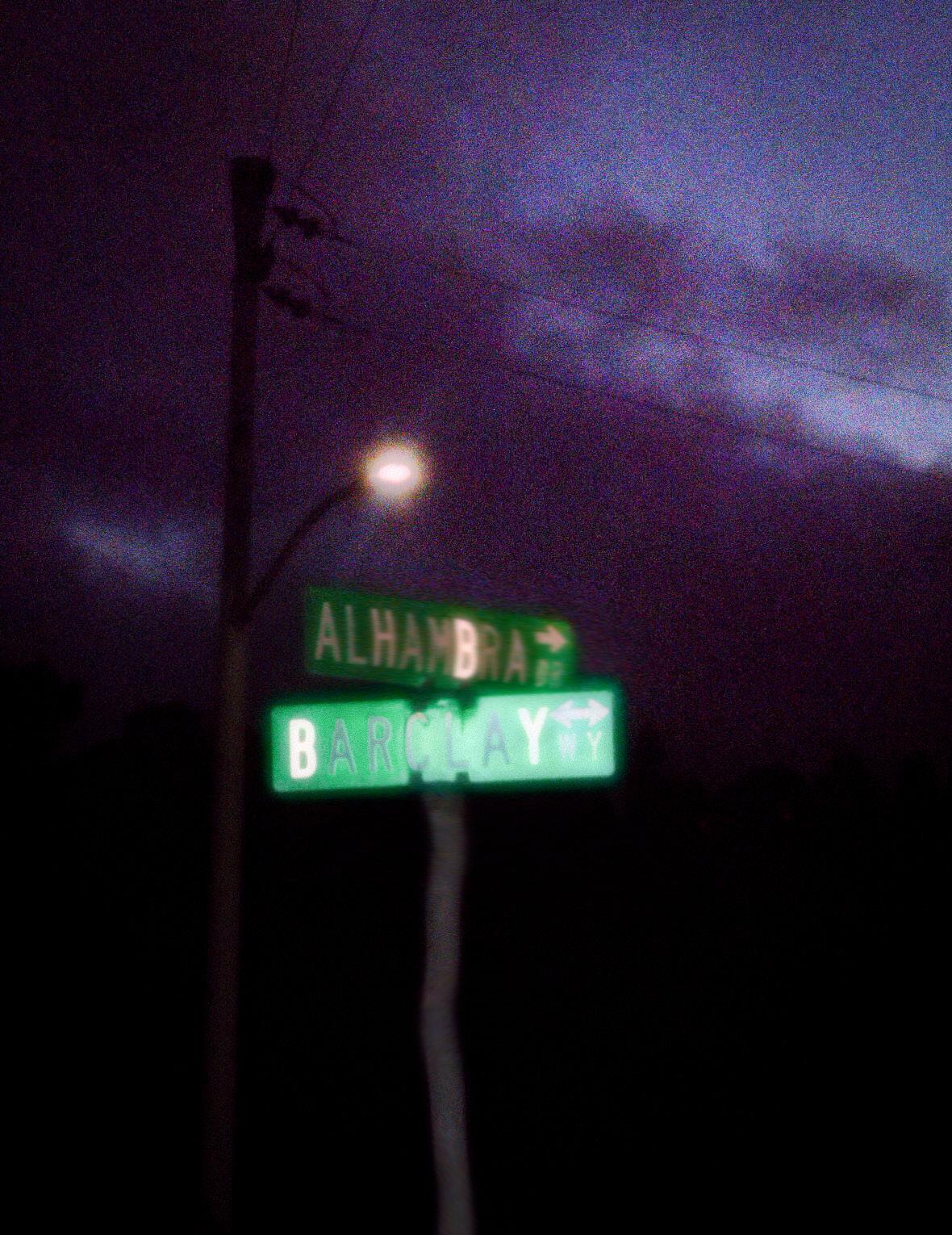


The Art of Nostalgia
Audrey PalecznyOn my page you once splattered some paint. A truthful accident, or how we first met. You shook my hand with the smile of a saint, And our fingers formed our budding duet.
Our pas de deux was no simple dance, Nor an ordinary story woven from text. Throughout our journey, I was in a trance, Wondering what path we would explore next.
Though now our time together has passed, I look upon our memories like photographs. You were a friend who left far too fast, Some once called you my other half.
Nostalgia is the art with which we reminisce, The beauty that shapes the past into bliss.

Excerpt from “A Requiem for Seventeen”
Schuyler Bruel“In my head we are twelve again sleeping on my bedroom floor, a tangle of limbs and hushed giggles. You tell me stories that feel like honeyed candy melting on my tongue and I bring you to my favorite places where magic feels so real I swear I can taste it. We worshiped the dirt, the sky, ourselves.
How long before the only sacred thing in our lives was a wooden cross nailed to a wall? Before the pain grew bitter it almost seemed sweet.
I have since discovered understanding how to die is to understand how to live. I feel as though I’ve died a thousand times, scattering bits of my soul through my life like pages ripped from a diary. You died as you lived, washed away like the dirt under our childhood fingernails. Nothing lasts forever, and I will learn to live with that.
In my head we are twelve again and I tell you I am sorry. You tell me I am forgiven. One day I will learn to live with that, too.”

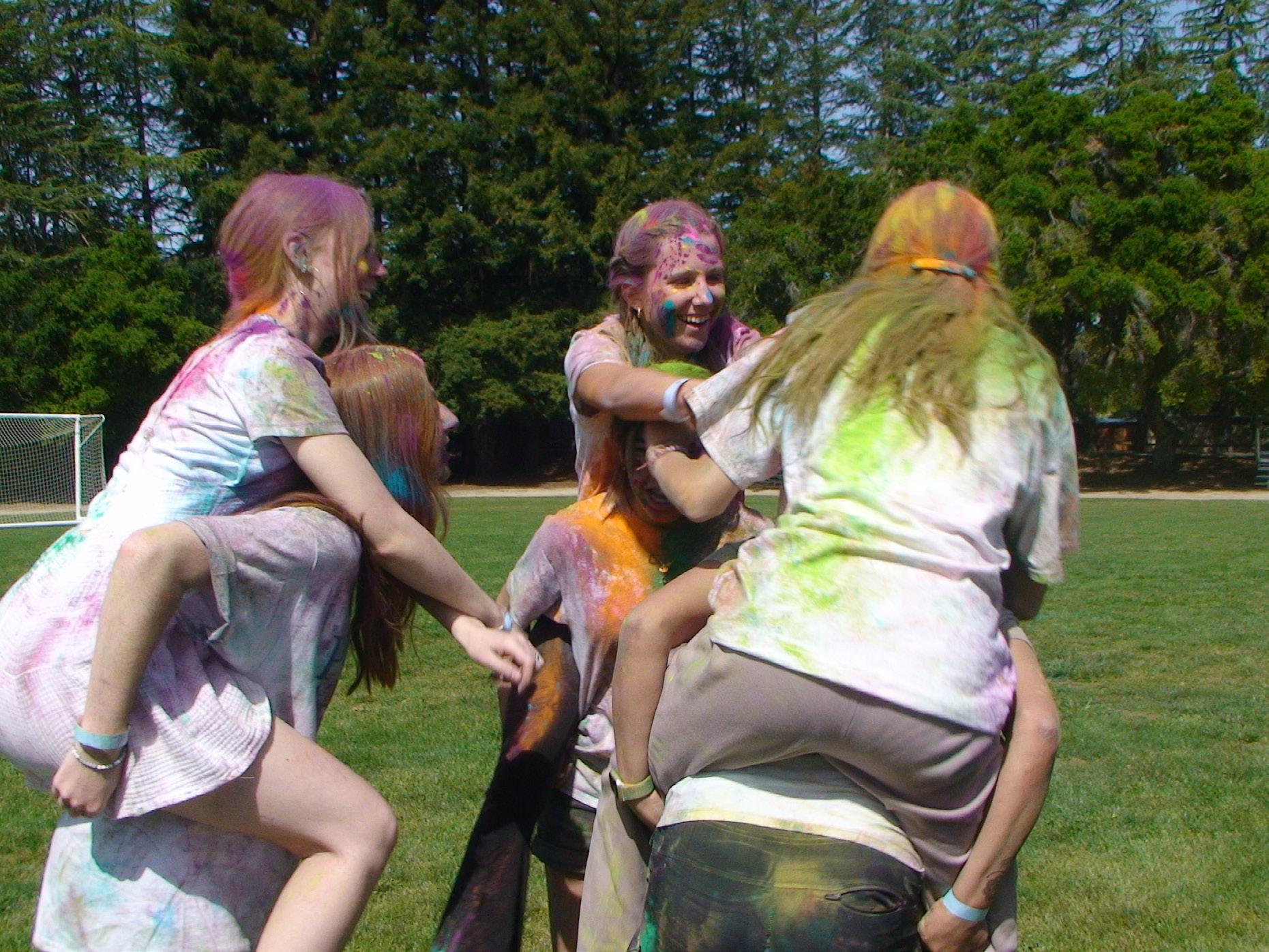 Morgan Dobrenski
Morgan Dobrenski
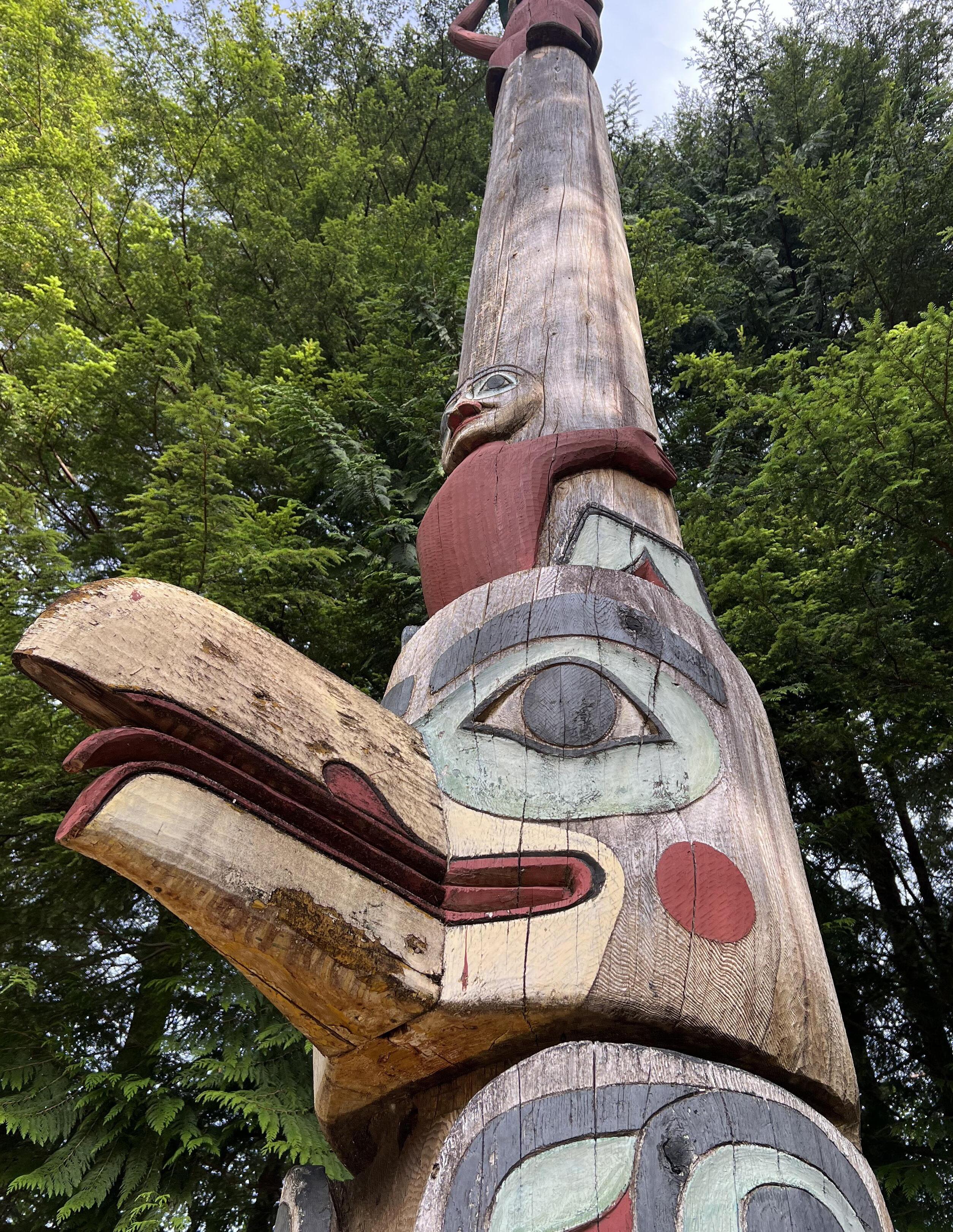
The Light
Riley NicolettiMoonlight flows on the surging river
The light shining so bright
All that is lost can now be found
Follow the light for it will lead to justice
A place of happiness and the light will shine
For when the moonlight is gone you might feel alone
Or scared but don’t worry
Soon the light will return brighter than ever


The Waiting Tree
Simone BrownCuriosity of ancestry grows anxiety within me
A Spalding tree of knowledge waiting for its picking day
Looking for the orchardist to set it free
I watch with mindful eyes at our lost history
A strong patience that slowly decays
Curiosity of ancestry grows anxiety within me
My grandfather’s dead parentry prevent him to see
The great narrative of the Browns within the Bay
Hoping for the orchardist to set him free
My parents tackle obesity with all things healthy
Wondering whose genes inspire their Take Off Tuesdays
Curiosity of ancestry grows anxiety within us three
Being switched at birth we couldn’t foresee
A mistake Papa’s nurse can no longer repay
He loses patience for the orchardist to set him free
My family can’t explain our moxie
Searching for the Abolitionist Leader gone away
Curiosity of ancestry grows anxiety within me
Looking for the orchardist to set it free

The Beaches of San Diego
Mia McIntyreI forget the reason why I resented the beaches of San Diego.
Maybe it was the salt water getting in my eyes, the sand sucking to my body and inhabiting my hair, or possibly the brutal sunburns from forgetting to apply sunscreen.
But the most reasonable answer was that the waters were too familiar. I didn’t enjoy that as a kid. It was boring.
When I moved up the coast, to the Bay, I met foreign waters.
These waters were cold, the coast rocky, not at all welcoming.
But who was I to care? I was the one who insisted on my displeasure of the southern waters
Those waters were warm, the beach soft, like a loving embrace
Ever so often, I find myself longing for the beaches of San Diego.
When it was warm When it was comfortable. When the sun shined.
Ever so often, I find myself questioning why I ever took their warmth for granted all those years ago.






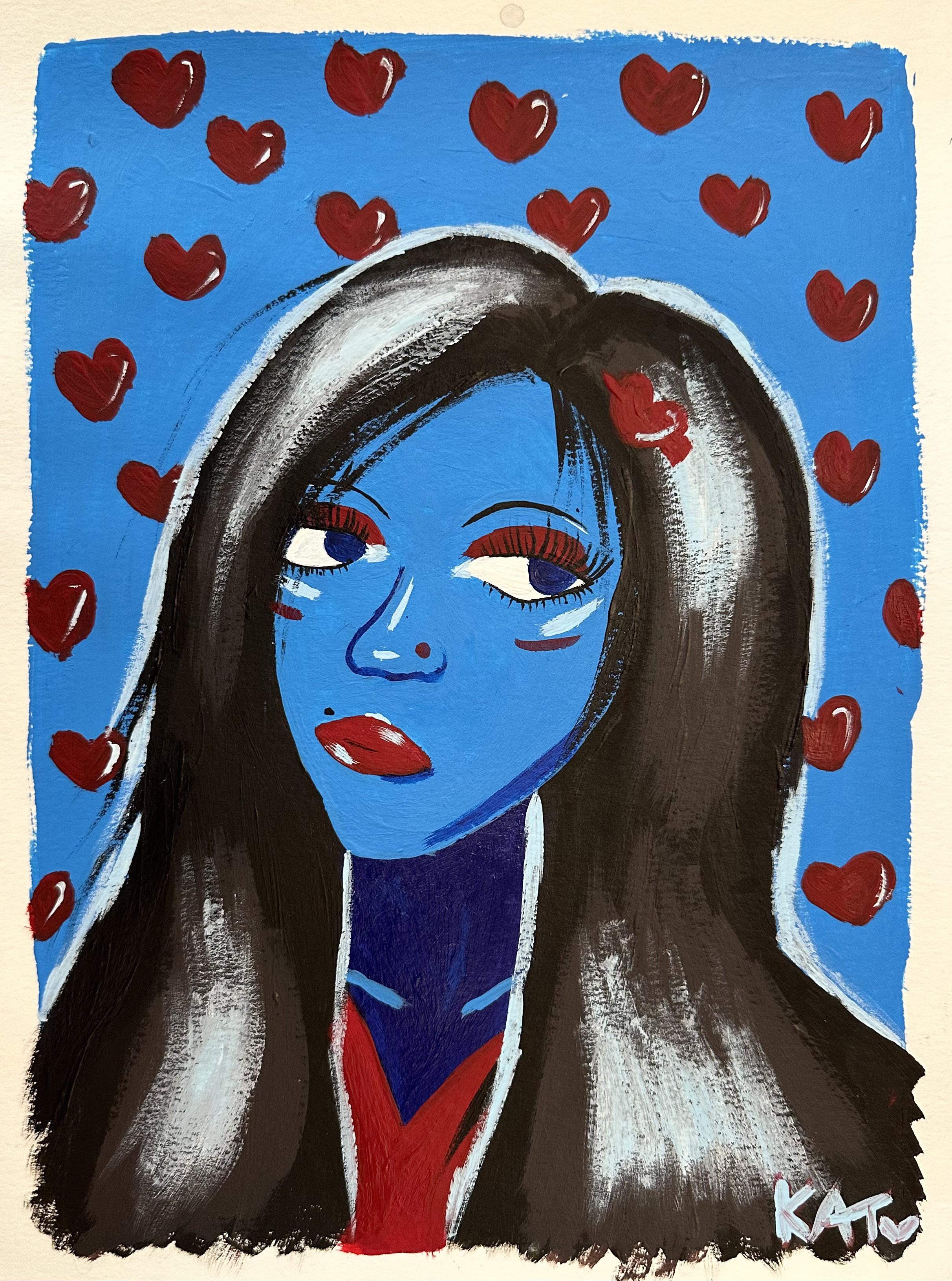

Different but the Same
Luke CarrWhen I was little, I refused to sleep in my own room. Instead I would sleep in my brother’s lower bunk. Because although I was and am always annoyed with him, He is my brother.
I stole his legos, just enough so he couldn’t complete his toy, And he would never miss a chance to make fun of me I was too slow to retort.
I would never dare utter a nice word about him. But when push came to shove, He protected me from the monster in the closet, And would fight any kid who bullied me.
He isn’t here for that anymore, He’s on the other side of the country. The days of striped bunk beds are long past us. And I kind of miss that annoyance...
A few years ago, my mom took my brother and I to see the home we grew up in. The couple that lived there was nice. They had two daughters.
The sisters were at each other’s throats our entire visit. The old sister refused to share her toy, The younger one pulled the other’s hair I can’t even count how many times I saw them Stick their tongues out at each other.
But when I looked in the older sister’s bedroom, I saw a bunk bed.
A bunk bed with both the top and bottom being used.
It was a strange sort of closure, knowing I would never step in that house again. That house that was Different, but the same.
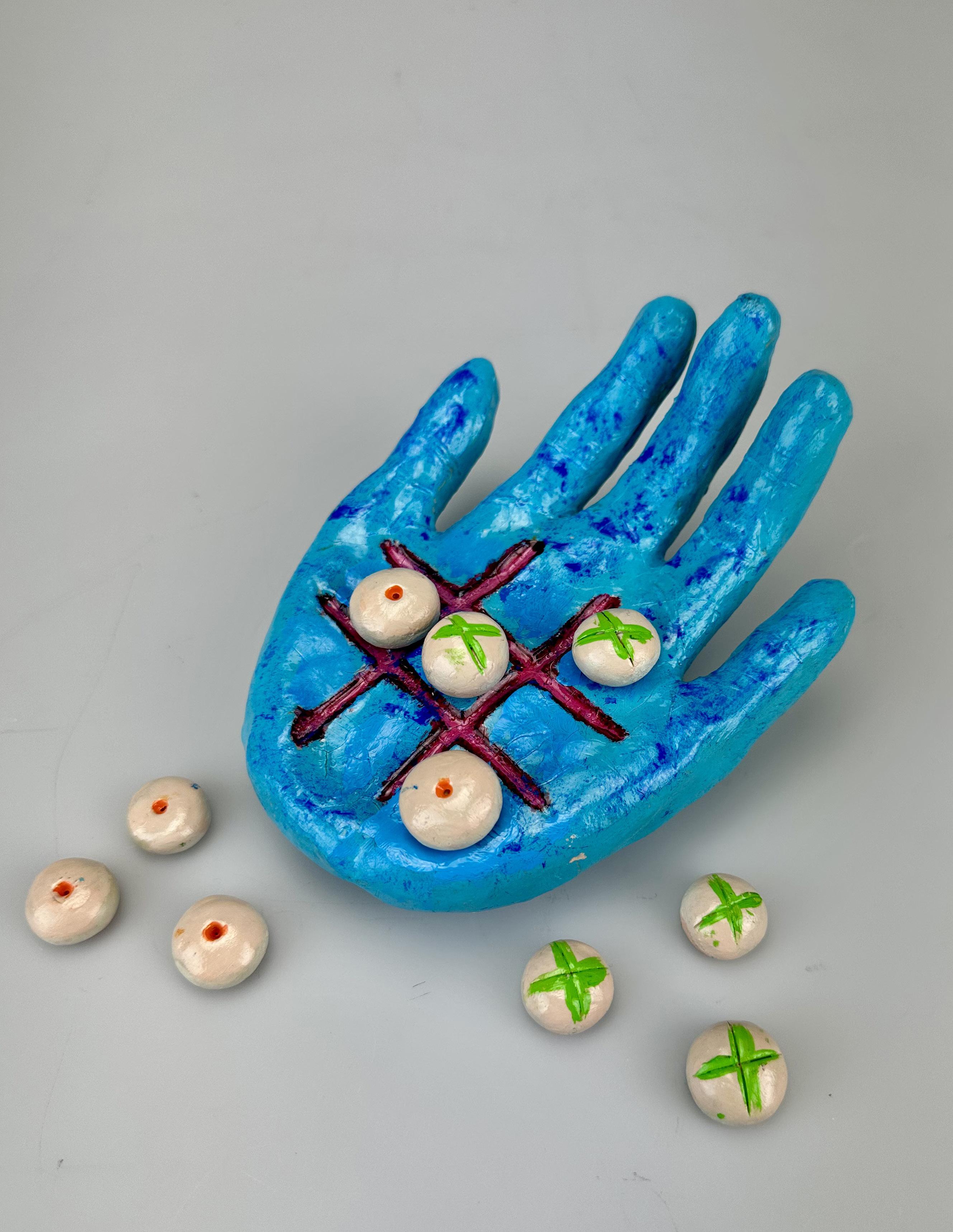
Blue Kippah
Victoria SegalThe Jews used to say When it is Shabbat morning, be prepared to be fully spiritual, before thinking about just staying in bed, watching T.V, schlepping around. That way, G-d will appreciate your effort for going to service Or, by then you’ll be so glad you came that you don’t care.
Let’s go back to that. Chumash? Talit? Here, take this blue kippah. My Rabbi will help lead you through the prayers.
No, I don’t care that you don’t come often! I was not preparing to pray by myself, That’s the mask everyone puts on to pretend they are committed to the temple.
I refuse to be busy. Your chumash is waiting. We will help you sing and carry the Torah


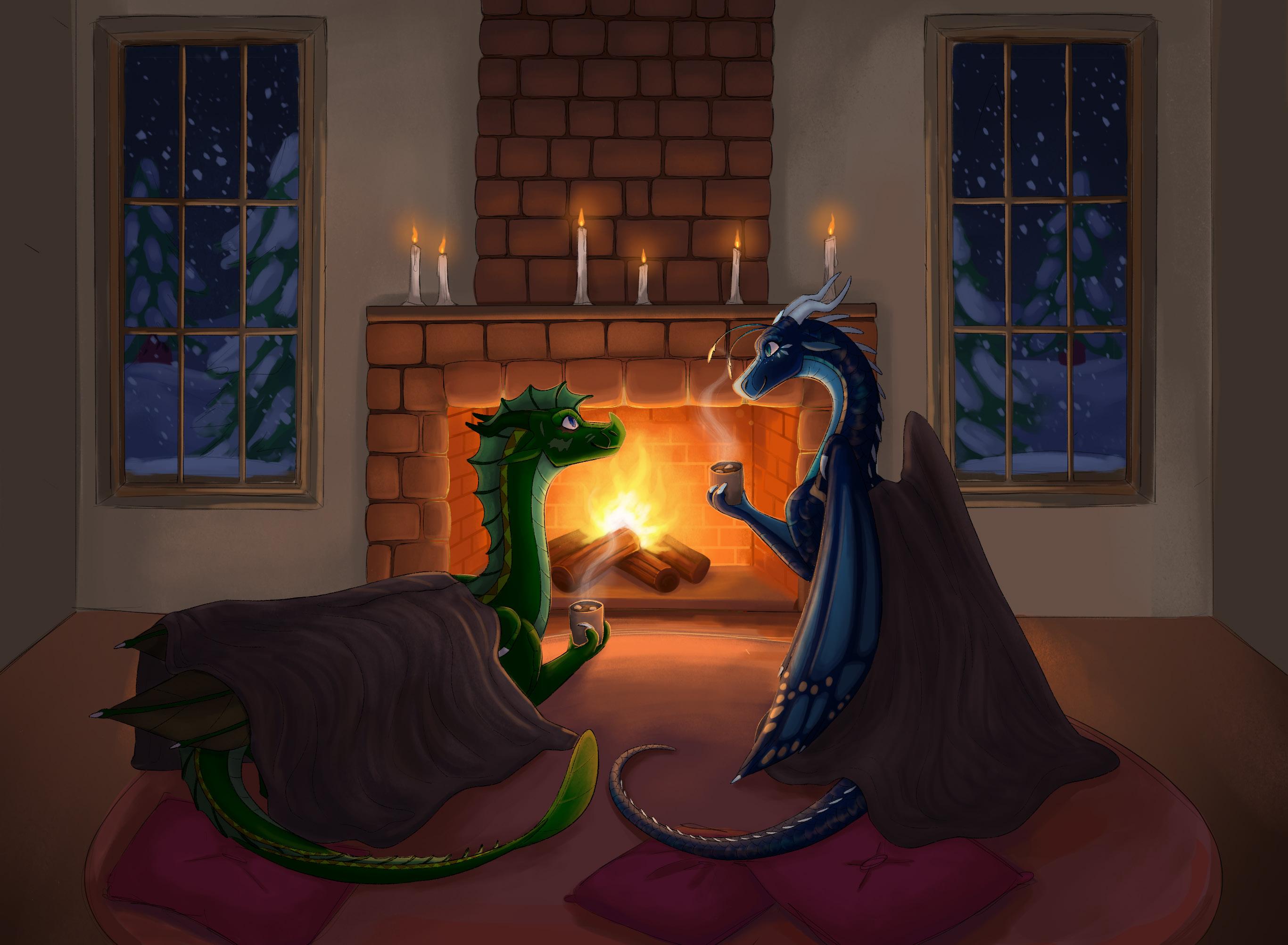

Leather
Jane Rukavina
She squeezed as hard as she could with her gloves.
Gripping the rein, pulling the rein.
She knew the reins much better than most, having used them day after day.
The soft, the strong, the braided leather. A single strap resting in her hands. A power to control.
Her fingers felt the energy through the braid rein.
The seat of her saddle was warm.
She cantered outside in the sunshine. Crows cawed around her there.
She told the crows, “Take care! Take care!”
What would she feel in the horses today?
She started so long ago.
So many ups and downs stitched into the leather. She stared into the aisles, heads poking out.
She called to the horses, “Be close! Be close!”
She sat on a horse, her body gliding. What was the thing she never gave up?
The simple love of difficult riding.
Navigating a Fractured World
Madeline FrankAs long as orange and yellow bursts of color flood the early morning sky
As long as the winds change from summer to fall and leaves unveil their scarlet canvases
As long as glistening waves lap the deserted shores stretching out a hand to reach the war-ridden sands
As long as the heavy weight of new beginnings divides you and me divides us from one another
As long as I watch a father leaving his child once more until the daybreak of war shines again
As long as the sudden firing of a gun shatters the sound of silence
As long as the question–what if we could live in the same world? –remains unanswered
As long as a distant future quickly becomes a distant memory
As long as we awake from the nightmare of battle and dive into our dreams of what we hope the world would be
But that is not reality
If every day another pistol shoots in between the eyes of a child

 50 Olivia Rosenthal
50 Olivia Rosenthal
 51 Avery Jackson
51 Avery Jackson

The Bags a Mother Carries
Kareena AgarwalIn the evening the mother walks in the kitchen balancing a medical bag and purse on her shoulders.
She knows all her families’ stories that come through generations: her children causing chaos Stomp on the floor. In the house she calms them to rest. She knows there are people who are carefree, who have few commitments and responsibilities, does not mean they are unfulfilled.
Still she carries her bags, the thick strap that rests on her shoulder, toting her kids to school rows of mothers in twos and threes, greet coworkers with nods and waves, a hum so slight the bags barely slip.
Seasons are changing, days turn into decades. The ink she uses to write our stories never fades but often is unnoticed, unless you need comfort and her arms to embrace you, where the mother asks to console them, drying your tears off for as long as you need.
They know I can’t carry the bags. Still they offer it, happily. They drink the spiced chai and laugh at the way I see my life, as if there were something better waiting there To be discovered.
Knitted Quilt
Farhan SaitMy parents once told me, If you pass by a homeless man, bless him with whatever you can before knowing his background, where he’s been, why he’s on the streets. That way he’ll have the passion to keep moving. Or, you will become such close companions that it doesn’t matter.
Let’s rewind to that.
Food? Water?
Here, take the hand-knitted quilt, My friends will provide food for your dog.
No, I was not in a rush when I saw you! I was not intending to be in a rush. That’s the mask everyone wears, to pretend you don’t exist in the world.
I will not be taken. Your coat is waiting. I will put spare change into your cup.



Patroclus
Jacqueline Biscay1
Is that an attitude for a ghost, to lie
Dead like a broken bow string; poor crushed child, Is that a way to show
Gratitude to the gods? Strong
With golden muscles, all the other boys, In the hot sun, as metal crashes on metal.
2
There were no ghosts in the mountains
But a boy’s warm eyes, soft smile, strong will.
So the godling sank to his knees with longing.
In the cave, in the tent, Achilles sent his footmen away.
3
And from the blood of the wound a haze was lifted, vividly, so that Achilles
Could see in color.
Then the godling wept: his lethal tears
Flooded the earth.
4
One’s other half dies: that is the source
Of death. Far out in the tides
Thetis could hear
The dog’s howl transmit Its shaken, prophesied sorrow—
She stood listening, amongst the frothing wake.
Was this her son’s lament?
She could not bear to listen. After a short while, She slunk into the waves.
5
There is immortality in death:
In the cold morning, the dog throttled his lover’s killer.
And yet, another death only brought the dog
Once more to his knees.
Or is it not his knees, but his heels?
And now soldiers are leaning over him,
Meaning to gather his body—
6
Thetis could not wait
In the tides forever.
Onto the sand and dirt
The sea nymph moved
Speaking the names Of her godling and his lover
Over the echoes of the dog’s howl, Over the crashing waves.
Well into the night she wept, Her clear tears
Poisoning no earth.
Ojos
Andrew StangerEn el campo jugando
El pasto alumbrado y vívido
Todo era más brillo
Esos ojos de la juventud
El iris manchado de marrón
La pupila negra como el escarabajo
Esos ojos eran diferentes
Esos ojos de la juventud
El marrón marchitando y el brillo se va Gritad y gritad
“¿Dónde está nuestra pasión que teníamos antes?”
Se fue
Se fue abrazando vuestros ojos



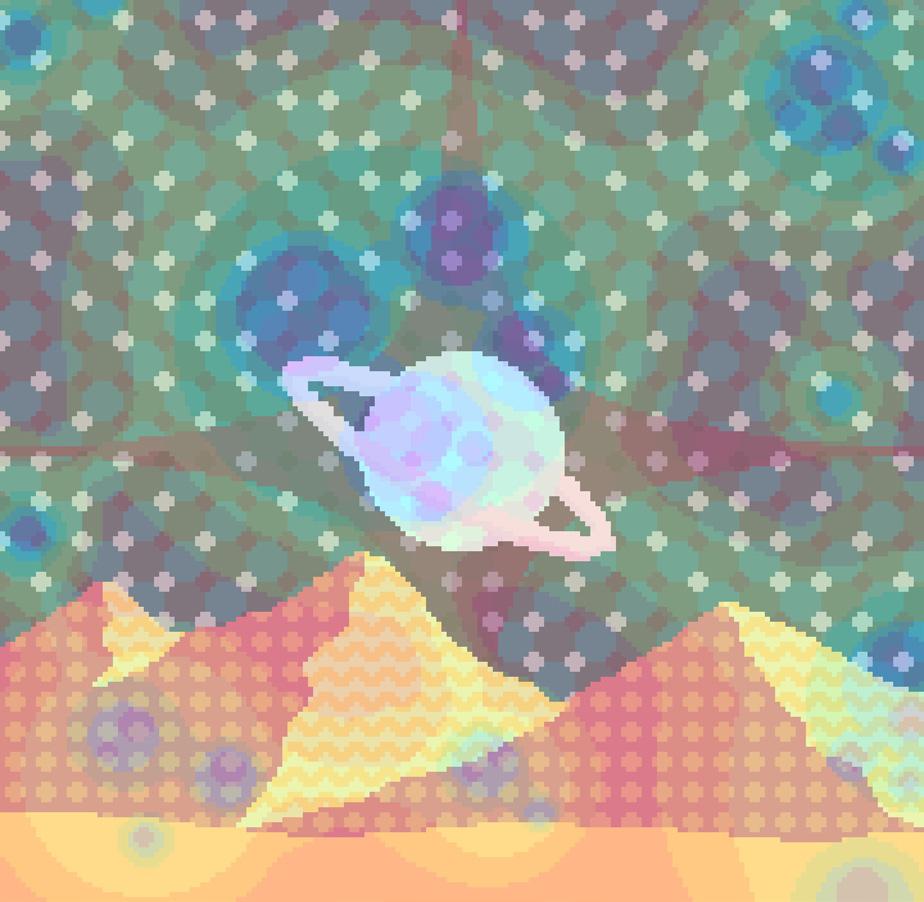
Falling Leaves
Evelyn Diarte EdwardsThe leaves switch teams from green to red, Hanging like a loose tooth, in the air. New things always take over the dead.
Crispy shriveled corpses lie on paths people tread, Common ones lumped in with the rare, As the leaves switch teams from green to red.
Did they know of their fate ahead?
But what could they do if they even cared? New things always take over the dead.
There’ll be no splotches of green after they shed, No breath of life in those who died in this affair, As the leaves switch teams from green to red.
As teammates were falling, were they filled with dread?
Did they see the end and decide to die with flair? New things always take over the dead.
They couldn’t help it, it’s in their nature to make a bed Of the ground below, far below down there, As the leaves switch teams from green to red. New things always take over the dead.





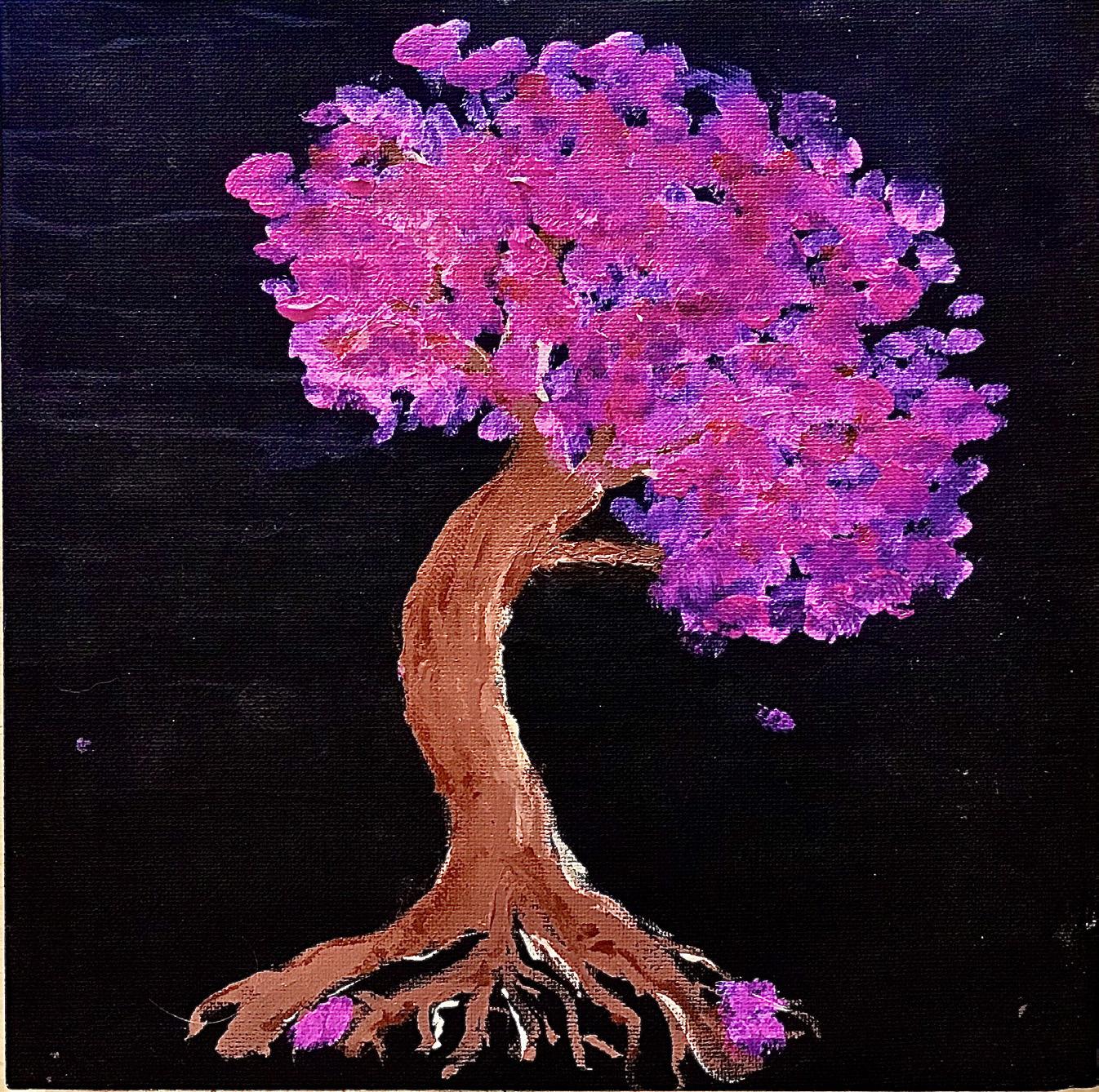


A Million Millets
Jacob LevinMillets, millions, are a wonder.
Sinister shops sell shadily marketed wheat While millets will be an end to hunger.
Let’s rank the grains! All fall under Millet, for it is best—but wheat is what we eat. Millets, millions, are a wonder…
Some are flax seeds, forgoing bright color. A hopeful few won’t take Big Grain’s deceit, Whose profits trump the end to hunger.
Modi and Hindustan have got it under Control, while elsewhere other grains compete. Millets, millions, make you wonder
If many countries have been torn asunder By perilous ploys from the evil elite. Can we finally have our end to hunger?
Nourishing our body, waking our soul from slumber. What if we could change the world through the way we eat? One million at a time. One million in number. Millets: an end to global hunger.


Get Out From Under There
Luke CarrWhen I was little, I loved to hide under my bed sheets. It made me feel so comfortable and safe. The dark coolness made me feel like I was an explorer, entering a deep, deep cave.
But my mom would always scold me “Don’t use your covers like that, get out from under there.”
Reluctantly, I would always listen, Crawling my way out while putting on my best pouting face.
I loved Sundays. My mom would be relaxing in her bed and wouldn’t care what I did. So I hid under the covers, played with my stuffed animals, even brought glasses of water into my room, believing I was doing the unthinkable.
As I grew older, my bed started to change. The pile of cotton creatures shrunk, My cover lost its design, The my bed grew from a twin To a queen. My bed no longer is where I play on my lazy Sundays. Now it’s where I finish my homework I procrastinated a bit too long...
Still, when I’m feeling stressed or just don’t want to leave the warm blankets grasp, I sometimes pull my bed sheets up and hide. That brief but oh so sweet connection to my childhood, I almost get scared that my mom will barge in and say, “Get out from under there”

